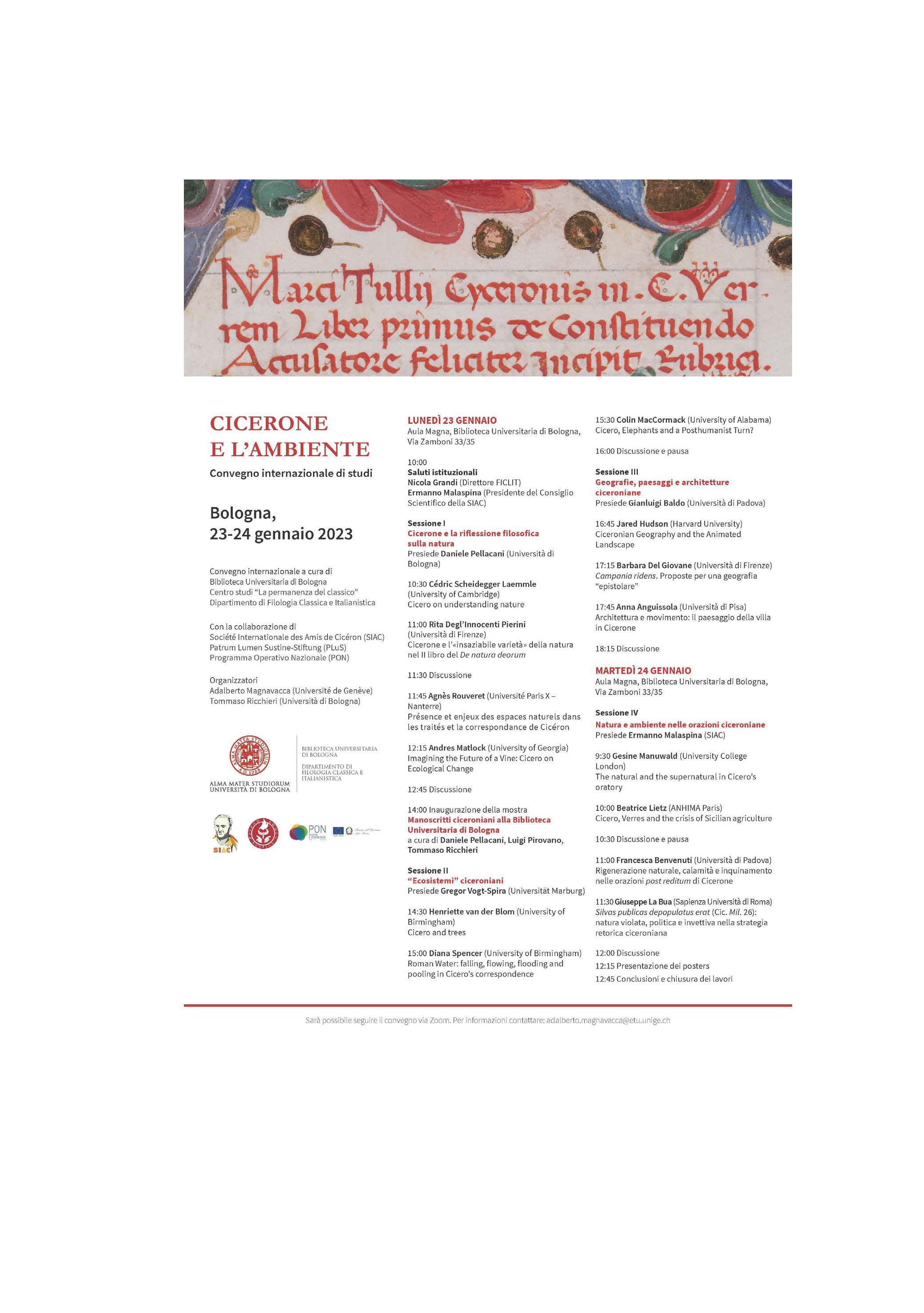Cicero and the 'Insatiable Variety' of Nature in Book II of De natura deorum
DOI:
https://doi.org/10.13135/2532-5353/9344Abstract
The article studies the exaltation of the manifold variety of terrestrial landscapes by the Stoic Balbus in the second book of De natura deorum (98-99). Cicero delivers a highly elaborate and formal description of the insatiabilis varietas of nature, in which natural, even wild, landscapes coexist with “cultural” landscapes, i.e. with evident traces of human intervention. The article examines the probable philosophical ancestry, expressive and poetic components of these landscapes, as well as their Nachleben (particularly in Seneca and Apuleius).
Downloads
Downloads
Published
How to Cite
Issue
Section
License
Authors who publish with this journal agree to the following terms:
- Authors retain copyright and grant the journal right of first publication with the work simultaneously licensed under a Creative Commons Attribution License that allows others to share the work with an acknowledgement of the work's authorship and initial publication in this journal.
- Authors are able to enter into separate, additional contractual arrangements for the non-exclusive distribution of the journal's published version of the work (e.g., post it to an institutional repository or publish it in a book), with an acknowledgement of its initial publication in this journal.


 Ciceroniana On Line is recognised by ANVUR (the National Agency for the Evaluation of the University System and Research) as a CLASS A journal for the Sciences of Antiquity, Philology, Literature and History of Art (
Ciceroniana On Line is recognised by ANVUR (the National Agency for the Evaluation of the University System and Research) as a CLASS A journal for the Sciences of Antiquity, Philology, Literature and History of Art ( The journal is included in DOAJ. The DOAJ listing of the journals is available at
The journal is included in DOAJ. The DOAJ listing of the journals is available at  The journal is indexed in
The journal is indexed in  The journal has been included in ERIH PLUS. The ERIH PLUS listing of the journals is available at
The journal has been included in ERIH PLUS. The ERIH PLUS listing of the journals is available at 

